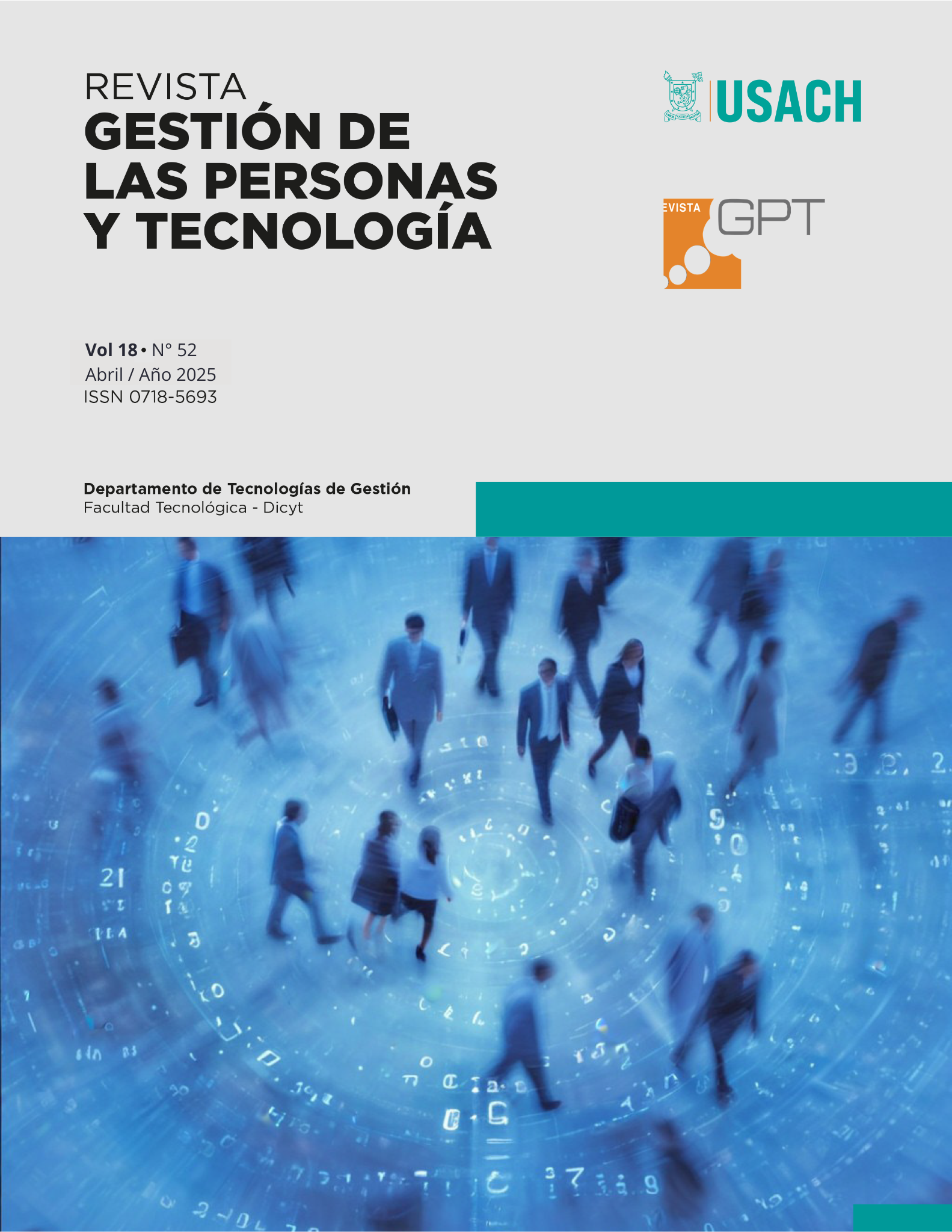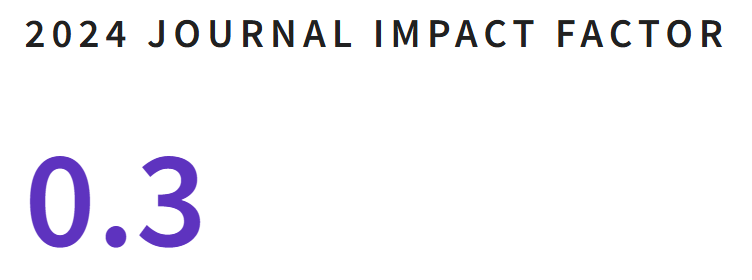Influence of emotional intelligence, satisfaction with studies, academic self-efficacy and trait anxiety on academic procrastination in psychology students: A multiple regression analysis
DOI:
https://doi.org/10.35588/8y821m43Keywords:
academic procrastination, multiple regression, university students, multivariate analysis, higher educationAbstract
This study explores the relationship between academic procrastination and several psychological factors—emotional intelligence, academic self-efficacy, study satisfaction, and trait anxiety—in university psychology students. A cross-sectional, non-experimental design was used, involving 888 participants from a private university in Lima, Peru. The results from multiple regression analysis indicate that these variables collectively explain 30% of the variance in academic procrastination, with significant contributions from each factor. Emotional intelligence, academic self-efficacy, and study satisfaction showed negative relationships with procrastination, suggesting that higher levels in these areas are associated with reduced procrastination tendencies. Conversely, trait anxiety positively predicted procrastination, aligning with findings that link high anxiety to task avoidance. These findings underscore the importance of emotional and motivational resources in academic settings, implying that interventions fostering emotional regulation, self-efficacy, and satisfaction with studies could help mitigate procrastination behaviors. This study provides insights into the factors influencing procrastination and highlights the need for holistic approaches to address academic delay tendencies in higher education.
Downloads
References
Alegre, A., Benavente, D. y Guevara, D. (2022). Adaptación lingüística y validación de la Escala de Procrastinación Académica –versión reducida (APS-S). Propósitos y Representaciones, 10(3), e1708. https://doi.org/10.20511/pyr2022.v10n3.1708
Alegre-Bravo, A., Guevara-Rabanal, D. y Gerbi-Durand, A. (2024). Análisis psicométrico de la escala de valoración del servicio de tutoría universitaria en estudiantes de primer año de Lima, Perú. Revista Gestión de las Personas y Tecnología, 17(51), 16–36. https://doi.org/10.35588/z9e02n41
Alegre-Bravo, A. A. y Guevara-Rabanal, D. A. (2024). Análisis psicométrico de la Escala Breve de Satisfacción con los Estudios (EBSE) en estudiantes universitarios de Lima metropolitana. Revista Académica de Docencia y Gestión Universitaria, 2(2), 9-16. https://doi.org/10.20453/spirat.v2i2.5945
Alegre-Bravo, A. A., Guevara-Rabanal, D. A, y Gerbi-Durand, A. C. (2025). Análisis Psicométrico del Experiences Close Relationship (ECR-12) en población adulta LGBT+ de Perú. Revista Psicológica Herediana, 17(2), 1–9. https://doi.org/10.20453/rph.v16i2.5810
Ato, M., López, J. J., y Benavente, A. (2013). Un sistema de clasificación de los diseños de investigación en psicología. Anales de Psicología, 29(3), 1038-1059. https://doi.org/10.6018/analesps.29.3.178511
Bhat, S. A. y Jan, K. (2023). Examining Academic Procrastination among College Students in Relation to Academic Satisfaction: A Correlational Study. RESEARCH REVIEW International Journal of Multidisciplinary, 8(7), 12–20. https://doi.org/10.31305/rrijm.2023.v08.n07.003
Bakker, A. B., Albrecht, S. L., y Leiter, M. P. (2011). Key questions regarding work engagement. European Journal of Work and Organizational Psychology, 20(1), 4-28. https://doi.org/10.1080/1359432X.2010.485352
Balkis, M. y Duru, E. (2016). Procrastination, self-regulation failure, academic life satisfaction, and affective well-being: Underregulation or misregulation form. European Journal of Psychology of Education, 31(3), 439–459. https://doi.org/10.1007/s10212-015-0266-5
Bandura, A. (1997). Self-efficacy: The exercise of control. New York: Freeman.
Chavez-Fernandez, S., Haro-Rodriguez, Y. M., Machaca-Calcina, L. G. y Adriano-Rengifo, C. E. (2024). Inteligencia emocional y procrastinación académica en estudiantes universitarios en Perú. Ciencias Psicológicas, 18(1), e-3333. https://doi.org/10.22235/cp.v18i1.3333
Domínguez, S., Villegas, G., Sotelo, N. y Sotelo, L. (2012). Revisión Psicométrica del Inventario de Ansiedad Estado-Rasgo (IDARE) en una muestra de universitarios de Lima Metropolitana. Revista Peruana de Psicología y Trabajo Social, 1(1), 45-54. https://es.scribd.com/doc/218953631/Revision-Psicometrica-del-Inventario-de-Ansiedad-Estado-Rasgo-IDARE-en-una-muestra-de-universitarios-de-Lima-Metropolitana
Dominguez-Lara, S. A. y Campos-Uscanga, Y. (2017). Influencia de la satisfacción con los estudios sobre la procrastinación académica en estudiantes de psicología: un estudio preliminar. Liberabit Revista Peruana de Psicología, 23(1), 123-135. https://www.redalyc.org/articulo.oa?id=68651823010
Ellis, P. (2010). The essential guide to effect sizes: Statistical power, meta-analysis, and the interpretation of research results. Cambridge University Press.
Ferrari, J. R., Johnson, J. L. y McCown, W. G. (1995). Procrastination and task avoidance: Theory, research, and treatment. New York: Springer.
Grunschel, C., Patrzek, J. y Fries, S. (2013). Exploring reasons and consequences of academic procrastination: An interview study. European Journal of Psychology of Education, 28, 841-861. https://doi.org/10.1007/s10212-012-0143-4
Guo, M., Yin, X., Wang, C., Nie, L. y Wang, G. (2019). Emotional intelligence a academic procrastination among junior college nursing students. Journal of Advanced Nursing, 75(11), 2710–2718. https://doi.org/10.1111/jan.14101
Hen, M. y Goroshit, M. (2012). Academic Procrastination, Emotional Intelligence, Academic Self-Efficacy, and GPA: A comparison between students with and without learning disabilities. Journal of Learning Disabilities, 47(2), 116–124. https://doi.org/10.1177/0022219412439325
Hernández-López, V. y Tobón-Tobón, S. (2017). La Tutoría Socioformativa en la Educación Superior Socioformative Tutoring in Higher Education. Docencia e investigación, 42(27), 33-58. http://hdl.handle.net/10578/19042
Klassen, R. M., Krawchuk, L. L. y Rajani, S. (2008). Academic procrastination of undergraduates: Low self-efficacy to self-regulate predicts higher levels of procrastination. Contemporary Educational Psychology, 33(4), 915-931. https://doi.org/10.1016/j.cedpsych.2007.07.001
Klassen, R. M. y Kuzucu, E. (2009). Academic procrastination and motivation of adolescents in Turkey. Educational Psychology, 29(1), 69-81. https://doi.org/10.1080/01443410802478622
Li, G., Xiong, Z. y Lin, P. (2024). Anxiety and Academic Procrastination in Deaf and Hard of Hearing College Students: A Moderated Mediation Model. Behavioral Sciences, 14(12), 1219–1219. https://doi.org/10.3390/bs14121219
Liu, G., Cheng, G., Hu, J., Pan, Y. y Zhao, S. (2020). Academic Self-Efficacy and Postgraduate Procrastination: A Moderated Mediation Model. Frontiers in Psychology, 11. https://doi.org/10.3389/fpsyg.2020.01752
MacCann, C., Jiang, Y., Brown, L. E. R., Double, K. S., Bucich, M. y Minbashian, A. (2020). Emotional intelligence predicts academic performance: A meta-analysis. Psychological Bulletin, 146(2), 150–186. https://doi.org/10.1037/bul0000219
Mayer, J. D. y Salovey, P. (1997). What is emotional intelligence? En P. Salovey y D. Sluyter (Eds), Emotional Development and Emotional Intelligence: Implications for Educators (pp. 3-31). New York: Basic Books.
McCloskey, J. D. (2011). Finally, my thesis on academic procrastination. (Master ́s thesis). University of Texas, Arlington. https://mavmatrix.uta.edu/psychology_theses/30/
Merino-Soto, C., Dominguez-Lara, S. y Fernández-Arata, M. (2017). Validación inicial de una Escala Breve de Satisfacción con los Estudios en estudiantes universitarios de Lima. Educación Médica, 18(1), 74–77. https://doi.org/10.1016/j.edumed.2016.06.016
Onwuegbuzie, A. J. (2004). Academic procrastination and statistics anxiety. Assessment & Evaluation in Higher Education, 29(1), 3-19. https://doi.org/10.1080/0260293042000160384
Özer, Z., y Yetkin, R. (2018). Walking through different paths: Academic self-efficacy beliefs and academic procrastination behaviors of pre-service teachers. Journal of Language and Linguistic Studies, 14(2), 89-99. http://files.eric.ed.gov/fulltext/EJ1184379.pdf
Parker, J. D. A., Summerfeldt, L. J., Hogan, M. J. y Majeski, S. A. (2004). Emotional intelligence and academic success: examining the transition from high school to university. Personality and Individual Differences, 36(1), 163–172. https://doi.org/10.1016/s0191-8869(03)00076-x
Palenzuela, D. L. (1983). Construcción y validación de una escala de autoeficacia percibida específica de situaciones académicas. Análisis y Modificación de Conducta, 9(21), 185–219. https://dialnet.unirioja.es/descarga/articulo/7101317.pdf
Ponterotto, J. y Ruckdeschel, D. E. (2007). An Overview of Coefficient Alpha and a Reliability Matrix for Estimating Adequacy of Internal Consistency Coefficients with Psychological Research Measures. Perceptual and Motor Skills, 105(3), 997-1014. https://doi.org/10.2466/pms.105.3.997-1014
Putra, N. A. y Soetjiningsih, C. H. (2023). Exploring the Relationship between Self-Efficacy and Academic Procrastination: A Study among Psychology Students. Bulletin of Counseling and Psychotherapy, 5(3), 261–269. https://doi.org/10.51214/00202305621000
Ragusa, A., González-Bernal, J., Trigueros, R., Caggiano, V., Navarro, N., Minguez-Minguez, L. A., Obregón, A. I. y Fernandez-Ortega, C. (2023). Effects of academic self-regulation on procrastination, academic stress and anxiety, resilience and academic performance in a sample of Spanish secondary school students. Frontiers in Psychology, 14. https://doi.org/10.3389/fpsyg.2023.1073529
Razali, N. M. y Wah, Y. B. (2011). Power comparisons of Shapiro-Wilk, Kolmogorov-Smirnov, Liliefors and Anderson-Darling test. Journal of Statistical Modeling and Analytics, 2(1), 21-33. https://www.nrc.gov/docs/ml1714/ml17143a100.pdf
Rothblum, E. D., Solomon, L. J. y Murakami, J. (1986). Affective, cognitive, and behavioral differences between high and low procrastinators. Journal of Counseling Psychology, 33(4), 387-394. https://doi.org/10.1037/0022-0167.33.4.387
Rozental, A. y Carlbring, P. (2014). Understanding and treating procrastination: A review of a common self-regulatory failure. Psychology, 5(13), 1488-1502. https://doi.org/10.4236/psych.2014.513160
Spielberger, C. D. (1983). Manual for the State-Trait Anxiety Inventory STAI (form Y) ("self-evaluation questionnaire"). Consulting Psychologists Press.
Spielberger, C. D. y Diaz-Guerrero, R. (2007). IDARE: Inventario de Ansiedad: Rasgo-Estado. TEA Ediciones.
Steel, P. (2007). The nature of procrastination: A meta-analytic and theoretical review of quintessential self-regulatory failure. Psychological Bulletin, 133(1), 65-94. https://doi.org/10.1037/0033-2909.133.1.65
Steel, P. y Klingsieck, K. B. (2016). Academic procrastination: Psychological antecedents revisited. Australian Psychologist, 51(1), 36-46. https://doi.org/10.1111/ap.12173
Tice, D. M. y Baumeister, R. F. (1997). Longitudinal study of procrastination, performance, stress, and health: The costs and benefits of dawdling. Psychological Science, 8(6), 454-458. https://doi.org/10.1111/j.1467-9280.1997.tb00460.x
Ugarriza, N. (2004). La evaluación de la inteligencia Emocional a través del inventario de BarOn (I-CE), en una de muestra de Lima Metropolitana. Persona, 4(004), 129-160. https://doi.org/10.26439/persona2001.n004.817
Wolters, C. A. (2003). Understanding procrastination from a self-regulated learning perspective. Journal of Educational Psychology, 95(1), 179–187. https://doi.org/10.1037/0022-0663.95.1.179
Downloads
Submitted
2024-11-17Published
Issue
Section
License
Copyright (c) 2025 People and Technology Management Journal

This work is licensed under a Creative Commons Attribution 4.0 International License.










